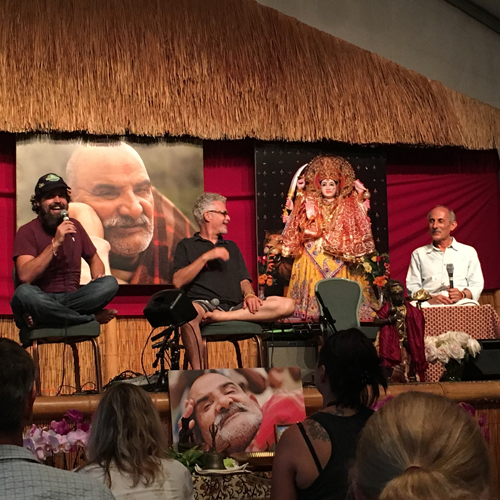The radiant abodes express the fruit of mental development. When they are in balance, loving-kindness, compassion, and joy rest in an unshakable equanimity. This peace is not indifference or emotional resignation; it is the still point, the living reality of the present. This dynamic stillness is what Dipa Ma calls the crowning stage of Buddhist training, “where consciousness becomes a symphony of loving-kindness, playing in a silent ocean of equanimity.
We have now come full circle, arriving where we started as T.S. Eliot write, “knowing the place for the first time.” Coming to rest in the present, wherever we are, becomes the seat of awakening. We are now truly alive, able to care, to work, to love, to enter life fully, with an open heart. We see the lawfulness of life unfolding, the causes of sorrow, and the choice for freedom. We do whatever we can to reduce suffering, and all along we are free. This is the final message Buddhist teaching communicates to its followers: you are free. This freedom is the very nature of our own heart and mind.
Each of us will reflect our inner freedom in a unique way, through our temperament, body, and culture. There are those who express their freedom primarily through silence, others through joy. There are those who express freedom through peacefulness and others through service and love. A free and awakened consciousness is experienced as a many-faceted crystal. One facet is peace, another is love, one is strength, another is clarity; one is gratitude, others include integrity, compassion, courage, creativity, joyfulness, and abundance. Each of these qualities can fill consciousness and shine through our body, heart, and mind. This is not simply a metaphor. It becomes our actual experience. We are illuminated by these qualities, one or several at a time.
When we find freedom, even pain and illness become part of the grace of life, and they are our teachers. Imperfections are part of the display of life. Joy and sorrow, birth and death are the dance of existence throughout which our awakened consciousness can shine.
This perspective is called finding the goodness in everything. As proof of the human capacity to do so, here is a prayer written by an unknown prisoner in the Ravensbruck concentration camp and left beside the body of a dead child: “Oh Lord, remember not only the men and women of goodwill, but also those of ill will. But do not remember only the suffering they have inflicted on us; remember too the fruits we brought forth thanks to this suffering-our comradeship, our loyalty, our humility, our courage, our generosity, the greatness of heart which has grown out of all of this. And when they come judgment, let all the fruits which we have borne be their forgiveness.”
The Thai Buddhist Ajahn Buddhadasa says that finding goodness everywhere allows us to be servants of peace. Buddhadasa means “servant of awakening” or “servant of peace.” He called his monastery “the garden of peace.” Amid the ancient forests, beautiful pools, bamboo, and stone sculptures, Ajahn Buddhadasa offered the teachings of loving-kindness, compassion, and peace. For fifty years, through cycles of war and truce, insurgency, simplicity, and modernization, tens of thousands came to hear his teachings of peace. As we awaken, we too become servants of peace, taking our place in the garden.
This is the culmination of the psychology of the wise heart. We are the beauty we have been seeking all our lives. We are consciousness knowing itself. Empty and spacious, compassionate and joyful, our very peace and equanimity begin to transform the world around us. Buddhist psychology helps us rediscover that freedom and joy are our original nature. “O Nobly Born, do not forget the luminous nature of your own mind. Trust it. It is home.”
This excerpt is taken from the book, “Bringing Home the Dharma: Awakening Right Where You Are“






